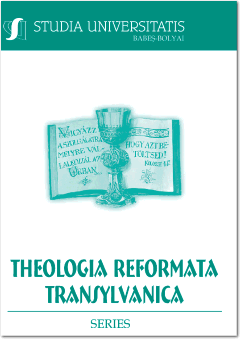ELCSERÉLT NARRATÍVÁK – GONDOLATOK A SZÉGYENRŐL A GEN 1–3 ALAPJÁN –
INTERCHANGED NARRATIVES – THOUGHTS ON THE CONCEPT OF SHAME BASED ON GEN 1–3.
Author(s): Anita BarnóczkiSubject(s): Christian Theology and Religion, Theology and Religion, Islam studies, Comparative Studies of Religion, Religion and science , Biblical studies, Sociology of Religion, History of Religion
Published by: Studia Universitatis Babes-Bolyai
Keywords: shame; narrative; boundaries; Trinity; cross;
Summary/Abstract: As humans, we can narrate ourselves in many ways. Our narratives and narrative identities are complex, they are developed, formed, and influenced by many factors. Shame is one of the determinants of the development of our narratives, which indicates the limitations and boundaries of the individual, keeping the individual within these and ultimately, as a positive effect, awakening a desire for God. However, shame can become a determinant of the narrative: changing the questions of “what is happening” to those of “whose fault is it” traps us and keeps us captive. Based on Gen 1–3, we can understand what our creational basic narrative could be, which is briefly that we are good creatures of God in a world created good, we have limited freedom, but great dignity, and a task as well. For the created man and woman, there was no shame; it appeared with sin; and from the details of the story of the temptation and the Fall, we can understand much of the mechanisms of changing the original narrative into the shame-narrative, and the functioning of the reactions given to it. One’s self-reflection gets alienated from revelation, then splits, falls into pieces, and the prevailing shame forces us to hide and to create obscure narratives. The use of the concept of shame in the Old Testament is sometimes linked to the moment of mourning, from which it can be understood how the public act, the manifest and lived, limited, fragmented, and weak state can resolve the self-destructive state maintained by hiding. True resolution can be brought about by the birth of a new narrative arising from the Trinity: in the cross, through Christ taking common cause with us in the deepest loneliness of shame and pain, God can become our Father. The Father sees us as children, in whom God is delighted through Christ. And the Holy Spirit can give light and strength in this, praying in a way we are unable to do, so that the statement “I am a Christian” may become a narrative mode, taking on the duality of the “already” and “not yet” state.
Journal: Studia Universitatis Babeș - Bolyai Theologia Reformata Transylvanica
- Issue Year: 64/2019
- Issue No: 1
- Page Range: 50-64
- Page Count: 15
- Language: Hungarian

